HAIR PROBLEMS
Many of us are affected by hair problems at some point during our lifetime, be it thinning of the hair, changes brought on by age, or a dry scalp. Just like the rest of our body, the health of our hair is subject to a range of environmental and genetic factors. However, many only begin to look more closely when hair problems arise. Since our hair plays such an important role in our self-image, hair problems can have an adverse effect on our psychological well-being.
But not all hair problems are equal, and each requires a different approach in terms of hair care. Revalid products are developed to tailor to your specific hair care needs.
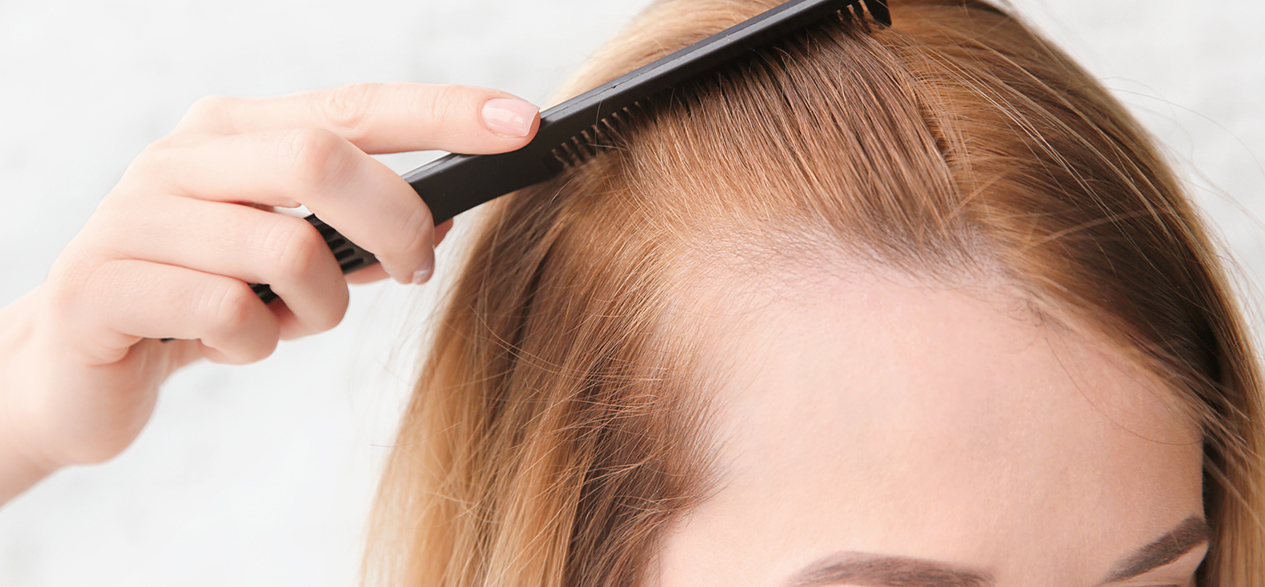
Hair Loss – Alopecia
Hair loss, also known as alopecia or baldness, refers to the loss of hair more rapidly than the average 100 hairs shed each day. Hair loss can be caused by a variety of factors – from genetics to hormonal fluctuations, to stress. Although this is often perceived as a “male” problem, both men and women are affected. Hair loss can also occur at any age.
The three most common types of hair loss are androgenetic alopecia, alopecia areata, and diffuse alopecia. Postpartum alopecia is also common in women after childbirth.
While some types of hair loss are permanent and others temporary, a well-tailored hair care routine can play a significant role in lessening symptoms and restoring self-confidence.
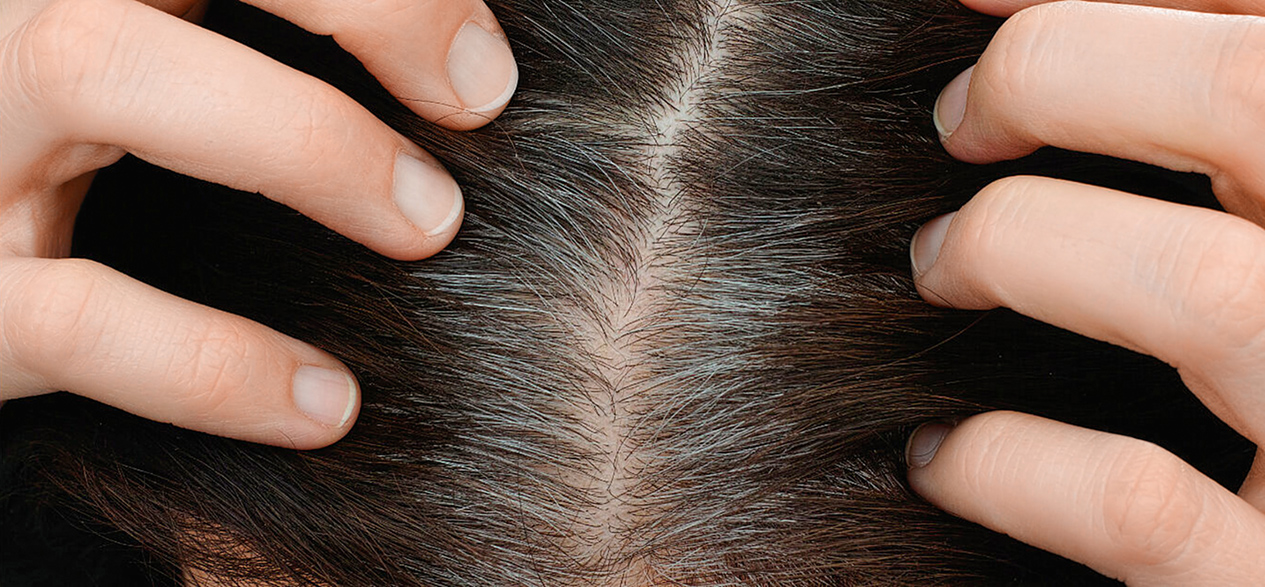
AGING / THINNING HAIR
In the same way that our skin ages, our hair ages too. Here we often think of a change in colour or going grey. However, mature hair also displays differences in moisture levels, density, texture, and lustre. The severity of these symptoms can be influenced by genetics, hair care, and styling habits.
These changes can have a negative effect on our well-being and self-confidence. As life expectancy increases so too does our desire to look youthful into older age. Our hair plays a significant role here. So just as we adapt our skincare routine as we grow older, a targeted hair care routine can also help us face the new challenges posed by aging hair.
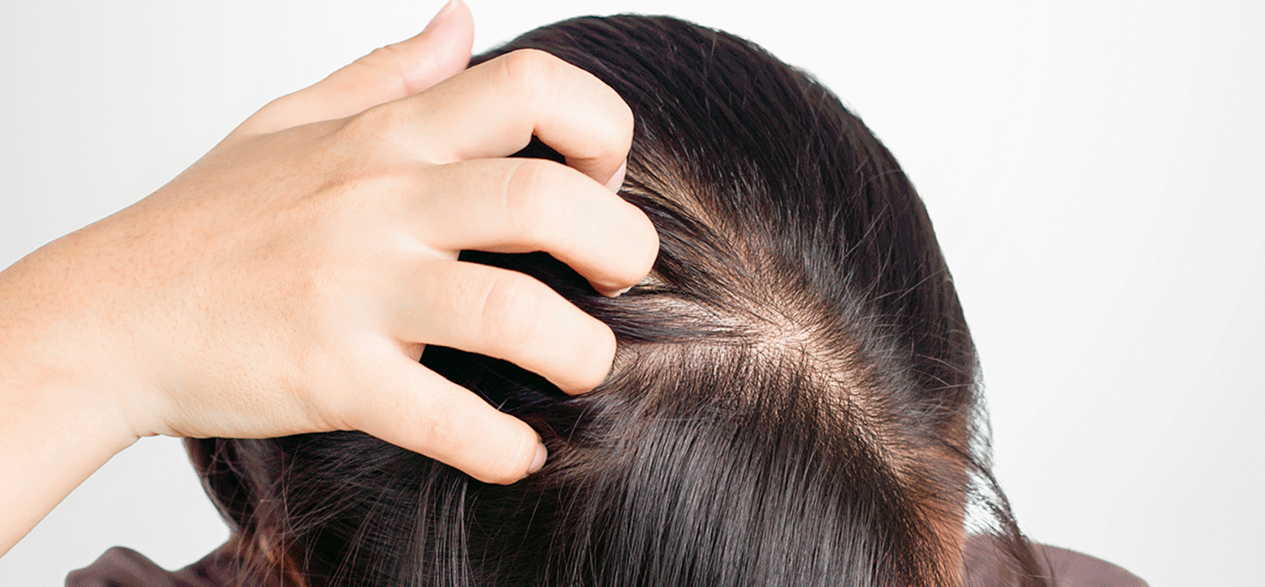
DRY SCALP
A dry scalp often makes itself felt as a tightness in the skin of the head, a flaky scalp or even dandruff-like symptoms. This is frequently accompanied by itchiness and irritation, which can lead to scratching, creating something of a vicious cycle. Such symptoms are signals from your body that the skin of the scalp is in need of moisture.
While some are simply prone to dry skin, and others have a dry scalp owing to an underlying medical condition, most cases are caused by external factors. These include excessive washing, the use of aggressive styling products, or harsh weather conditions. As such, a hair care routine designed to alleviate this problem can provide fast relief.
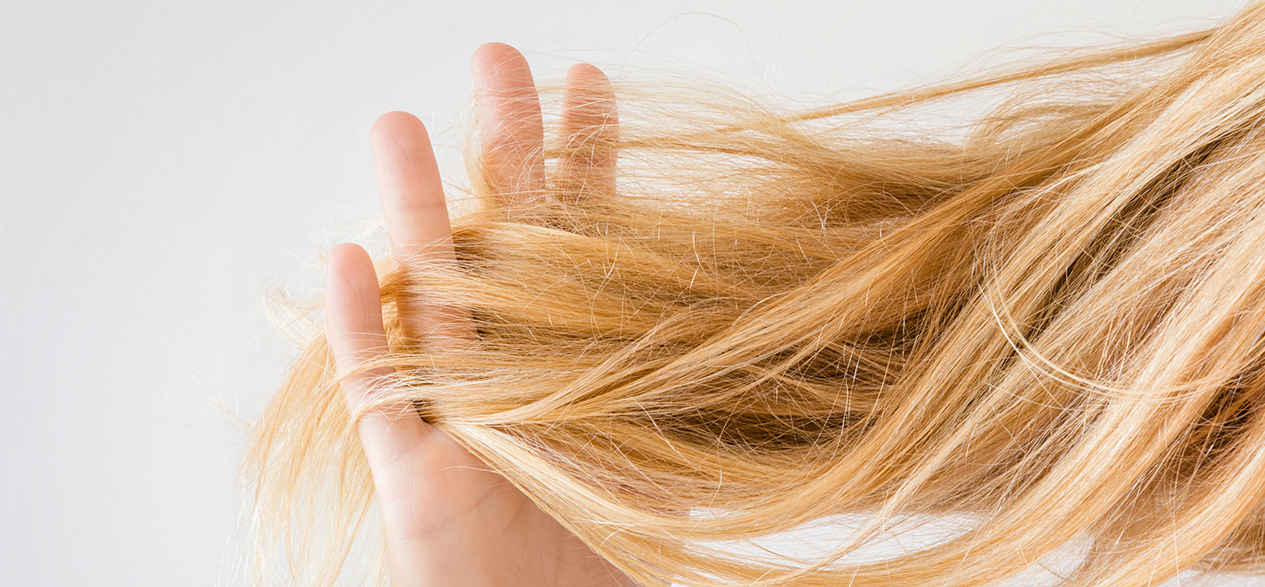
SPLIT ENDS
Split ends occur when the outermost layer of the hair shaft is damaged causing it to split or fray. This is often accompanied by hair breakage, dry hair ends, and dead ends. Damaged hair often becomes dull and untidy in its appearance, as well as being difficult to style and manage.
There are several types of split ends, and while each type can have its own origins, most cases are caused by physical damage through grooming and styling, e.g., using chemicals or heated styling tools. As such, a change in hair care habits can often alleviate symptoms as can adopting a hair care routine specially formulated for hair prone to split ends.
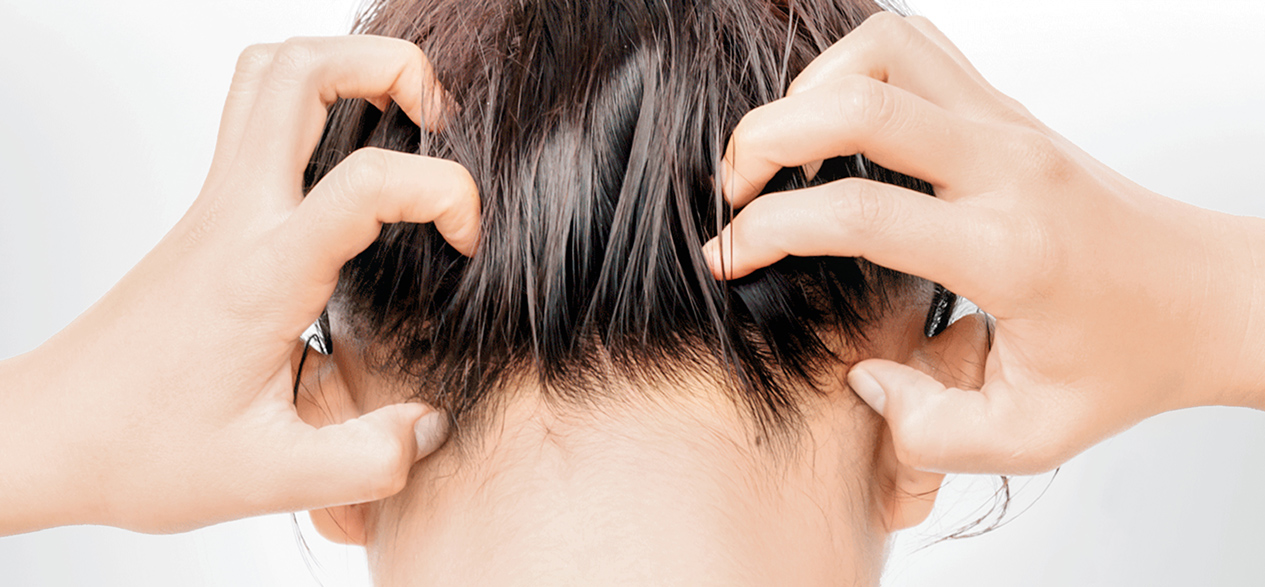
ITCHY SCALP
Dandruff describes a condition that many recognize as white flakes of dead skin accumulating in the hair and on the shoulders. It is also accompanied by an itchy, sometimes red scalp. Dandruff can be caused by the hair being too dry or too oily. It can also be the result of an underlying skin condition such as eczema.
Unfortunately, an itchy scalp often leads to excessive scratching, causing further inflammation, a rash or even sores. While dandruff is harmless to your health, it can be detrimental to a person’s self-esteem. Most cases can be treated using hair care products designed to combat dandruff.
